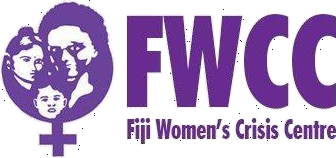Johnny Santos CHIEF of FSM National Police FSM: Training Critical For All Police
8 Feb, 2018
[GUAM Feb 08 2018] “Human rights is an area I am not too familiar with, I know my government has made agreements to uphold human rights but I’ve never really known what exactly those agreements were,” expressed Johnny Santos, Chief of National Police Federated States of Micronesia (FSM).
Santos, who started his career in the police force in 1992 and Chief of Police sine 2012, has never attended a human rights training during his career as a police officer. Santos agrees that learning about human rights is critical because it is closely connected to the rule of law and believes that the two go hand-in-hand together, “I really enjoyed the sessions we had going through the different human rights agreements that most of our governments in the Pacific have made because it is connected to our laws that protect victims and it is also connected to our work as police where we are to respond professionally to domestic violence cases,” says Santos.
Gender equality is also a concept that Santos takes seriously, “back at home, there are seven female police officers who have been assigned to work on the patrol boats and there was huge opposition when they were assigned because many did not believe that our female officers should work on the boats, mainly because of the conditions, but I supported the idea because these female officers told me directly that they wanted the opportunity to work on the boats,” said Santos.
Santos said that the gender training helped him realise that what he did was right but he also now understands better the importance of female officers having access to the same opportunities as the male police officers, “I think this type of training is really needed for all my officers, at all levels, so that they understand the importance of gender equality and human rights. When the female officers were assigned on the boats they faced sexual harassment and the male officers involved were dismissed from their posts and so it’s important the police officers undertake this training so they know and understand why sexual harassment is not tolerated”.
Santos looks forward to returning back home and talking to all his police officers about the training he has undergone and to look at better working methods with all the states to ensure ongoing training is undertaken, “for example, child abuse training and understanding how to recognise children who have been abused and the types of child abuse is really needed in all the states otherwise it will continue to be underreported,” said Santos.
The prevalence rate of violence against women in intimate partner relationships in FSM is 32.8% as noted in the Federates States of Micronesia Family Health and Safety Study, 2014. Santos is attending the Australian Federal Police (AFP) and the Fiji Women’s Crisis Centre (FWCC) Gender and Human Rights Training for Senior Executive Level Police Officers from the Micronesian region in Guam [ENDS]
